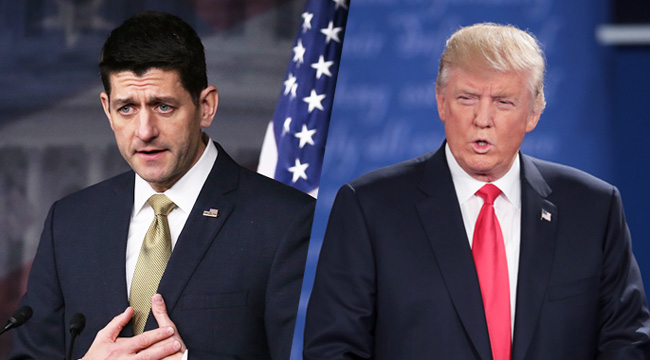
The conflicted Paul Ryan’s beleaguered stance is nothing new. He’s been bearing a tortured persona ever since Donald Trump became the presumptive GOP nominee. Even after Trump secured the number of delegates needed to claim the honor, Ryan dragged his feet and made Trump “earn” the endorsement. He finally caved in June, and in return for that favor, Trump somehow started embarrassing establishment Republicans even more with his accelerating rhetoric and troll-like praise of Saddam Hussein.
Ryan was content to sit back and accept his party’s punishment until Friday, which was apparently the last straw. He could accept Trump’s xenophobia and countless gaffes, but Trump’s extremely lewd comments about women went too far. Ryan was “sickened” and disinvited Trump from a joint event. The second debate didn’t appear to help matters, for the Washington Post reports how Ryan has reportedly refused to hit the campaign trail or even vaguely defend Trump’s actions. He’s “nervous” and chooses to hunker down and try to mitigate party damage for the upcoming House elections:
House Speaker Paul Ryan will not campaign with or defend Donald Trump through the November election, according to a knowledgeable person who participated in a phone call with House GOP lawmakers on Monday morning.
“The speaker is going to spend the next month focused entirely on protecting our congressional majorities,” said Ryan spokeswoman AshLee Strong.
During this call, Ryan apparently never addressed his endorsement of Trump or whether he’d revoke it, although he won’t publicly support Trump and has encouraged other House members to protect their own reelection chances if that’s what they feel they need to do. The focus, of course, will be to ensure the House hangs onto the current 30-seat House majority, which could be at risk if voters can’t stomach Trump or anyone who supports him. Will the tactic work? The party seems destined to lose the presidency at this point, and as of now, the goal appears to be preventing the damage from spreading any further than the executive branch.
(Via Washington Post)

